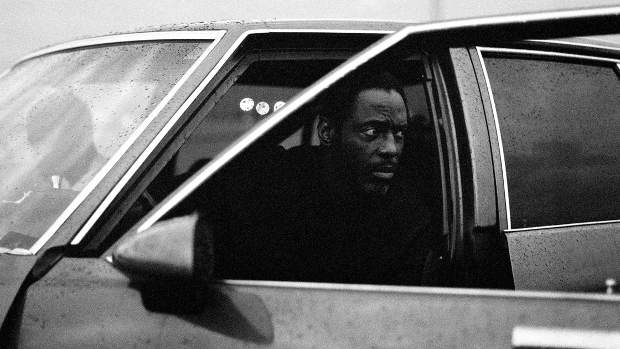 Back to selection
Back to selection
Five Questions with Blue Caprice Director Alexandre Moors
 Blue Caprice
Blue Caprice Named for the car from which John Allen Muhammad and Lee Boyd Malvo committed the 2002 Beltway Sniper Attacks, Alexandre Moors’ debut Blue Caprice attempts to move past the chilling anonymity of those attacks to get at the motivations and interior lives of its two culprits. The film is intimate and disturbing, as Moors, a French director who has mostly worked in music videos until this point, focuses on the dysfunctional father / son bond formed between Muhammad and Malvo (played by Isaiah Washington and Tequan Richmond, respectively), and digs into the distinctly American mindset that they committed their crimes within. Blue Caprice premieres today in the NEXT section of the Sundance Film Festival.
Filmmaker: At what point did you first conceive of doing a film about the Beltway Sniper Attacks? What made you think it was ripe for a filmic retelling?
Moors: I started working on the film with my screenwriter R.F.I. Porto in early 2011. We were looking for a true crime story as inspiration when I found a short article online about the D.C. snipers, which described them as a father and son that were actually not blood-related. They simply had adopted each other in some strange way and teamed up in this absurd fight against society. I immediately knew this was amazing material for a film.
It helped also that I wasn’t in the country when the true events were taking place. To some degree, I was unaware of how big that story was and how it affected so many people. I was able to focus only on the dramatic material.
Filmmaker: What was your research process like? How much of what we see on screen is based on facts & records? Are there any moments in the film that are pure invention on your part?
Moors: R.F.I. Porto and I were committed to learning everything we could about the real story. We reached out to a lot of people involved in the events and had access to all sorts of legal documents, from court testimonies to psychological profiles.
Porto and I also went to D.C. and Maryland to retrace the steps of the killings, which also meant spending a lot of time driving around in a car, just discussing that story and figuring out our angle. Only when we knew all the facts, were we confident enough to begin the writing process, which meant fictionalizing the real-life story.
Filmmaker: Tell me a bit about the casting process. What did Isaiah Washington and Tequan Richmond bring to their individual roles?
Moors: I was immensely fortunate to have them on board, as their performances brought the film to a level above and beyond everything I was hoping for. Isaiah brought this indecipherable ambiguity to John’s character that makes you relate to his suffering. He became a sort of modern Captain Ahab; you can’t help but being fascinated by his nihilist quest. Tequan dealt with an even harder task at hand, as his character remains silent for a good part of the film. He keeps you guessing as to the nature of his inner thoughts.
Filmmaker: One of the many surprising choices you make is to focus the majority of the story on the months leading up to the sniper attacks rather than on the attacks themselves. How did you decide on this narrative structure?
Moors: This decision was made very early on. The first drafts of the script didn’t even touch on the D.C. attacks. What interested me first and foremost was the father and son bond that developed between these two dropout characters. What exactly drew them together? Why would the fusion of their personalities create such a dangerous cocktail?
Another aspect that fascinated me was the transformation of Lee from an innocent orphan into a cold-blooded killer – in essence, the making of a child soldier. I thought that the mechanisms at play could speak to some degree about the culture of violence that goes on in America.
In both cases, I believed that the roots of the killing spree were more interesting that the event in itself. The attacks were extensively covered by the media, and everyone knew that aspect of the story already. The reasons why and how they ended up there were more interesting questions to investigate.
